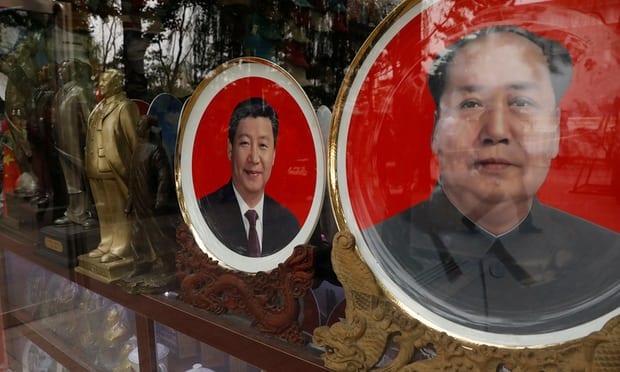BEIJING – China’s ruling Communist Party on Tuesday added President Xi Jinping’s name and his ideology to its constitution declaring him most powerful since Mao Zedong, founder of the party.
The incredible move took place at the end of 19th party congress, which is held twice a decade, in Beijing by including Xi’s concept of “socialism with Chinese characteristics for a new era” to party charter.
This amendment means that any challenge to Xi will now be taken as a threat to the ruling party.
Speaking on the occasion, the president said that great and bright future was waiting for Chinese national ahead, adding, “Today we, more than 1.3bn Chinese people, live in jubilation and dignity. Our land … radiates with enormous dynamism. Our Chinese civilisation shines with lasting splendour and glamour.”
He further said, “Our party shows strong, firm and vibrant leadership. Our socialist system demonstrates great strength and vitality. The Chinese people and the Chinese nation embrace brilliant prospects”.
The party also amended the constitution adding a pledge to promote the foreign policy of Xi and his initiative regarding infrastructure also known as “One Belt, One Road.”
Mao was the only living leader who had been honoured in this way by incorporating his philosophy – Mao Zedong Thought – into the charter of party since the Communist Party was established in 1921.
The name of Deng Xiaoping, known for ushering economic reforms, had been added to the constitution with his ideology called Deng Xiaoping Theory, but after his death in 1977. His policies were followed by his successor Jiang Zemin and Hu Jintao.
Xi has presented his ideology as central to putting the country on track of achieved a “decisive victory in building a moderately prosperous society in all respects”.
The Chinese president has vowed to develop a prosperous and modern society by 2021 – the 100th anniversary of the ruling party.
According to International Monetary Fund (IMF), China is the second largest economy in the world, while it holds 79th position in the world in wake of per capita GDP.














